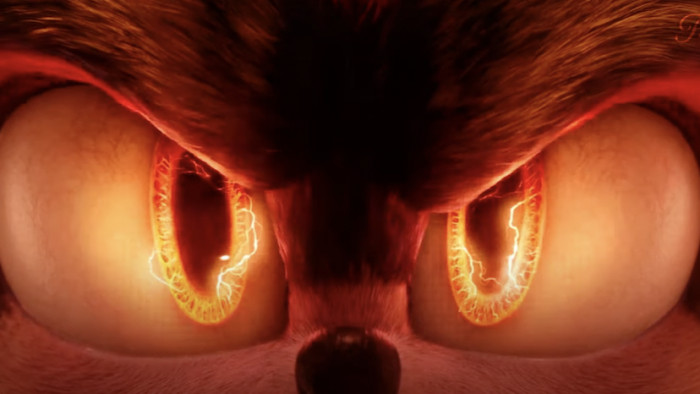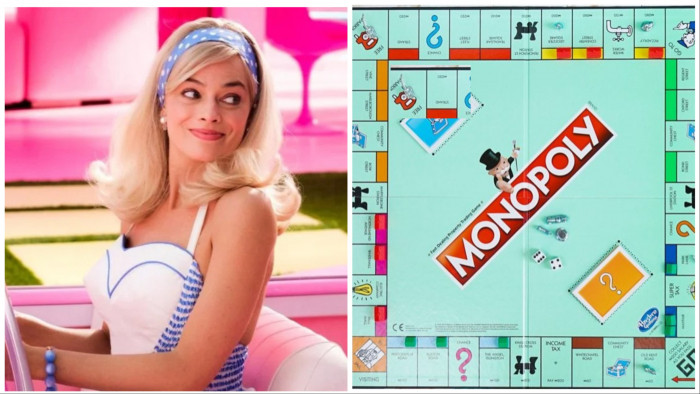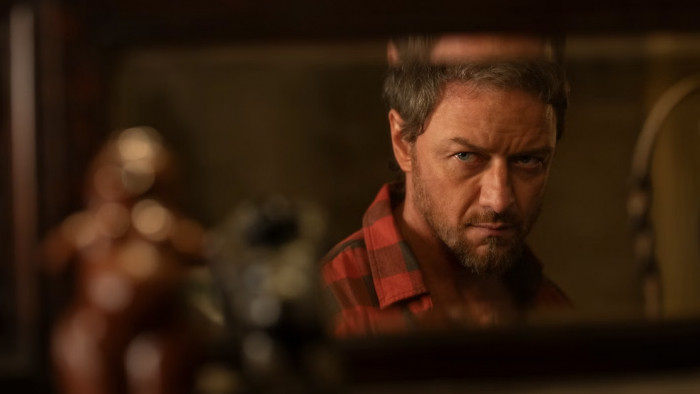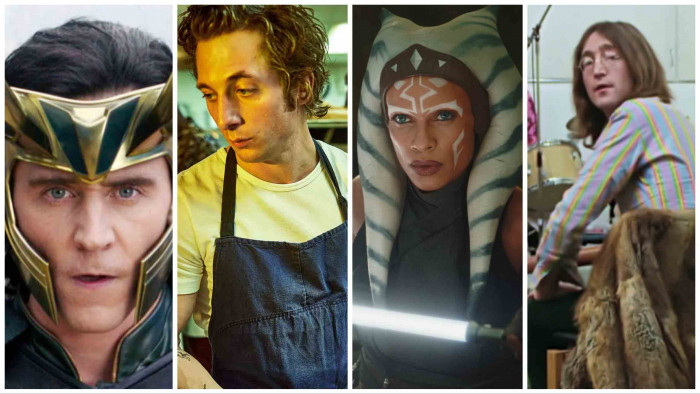There’s a lazy generalisation of superhero films that seems to rear its head upon every new release: that their stories are too similar. Everything repeats itself. A hero whose greatest strength is also their greatest weakness enters a situation that they aren’t ready for. They face an opponent who is a dark incarnation of themselves, showing the hero what they would be if they gave into their baser impulses. Fights are had. The hero loses one, has some jokes and pep talks with friends, before eventually regrouping, coming back stronger. The hero overcomes. Roll credits (not forgetting to stick around for the post-credits tease).
It’s a lazy criticism which takes such a zoomed out look at the stories being told that it loses all perspective of what makes superhero films good. Captain America: Winter Soldier is a ‘70s noir-tinged spy film. Guardians of the Galaxy is a meta Flash Gordon-riffing sci-fi tale. To say their stories are similar because they both tell jokes and chase glowing rocks overlooks the differences in genre, art design and character work that make the films interesting.
There is a part in Black Panther where a character runs off mid-battle to blow a horn and summon backup. After years of watching action films your brain expects a tank, helicopter or perhaps even a dragon to emerge. What does emerge is something so uncommon and unexpected that it set my mind aflame. Backup arrives, but it takes the form of something consistent with what an African man who has lived away from Western culture for years would use as auxiliary support. The storytelling is familiar, but the difference is what makes it beautiful.
The differences matter when you don’t see yourself on screen every day.

Chadwick Boseman as the film’s titular character
In the early 2000s there was a joke about Bill Clinton being ‘the first black president’. The thrust of it was African Americans couldn’t see a world in which a black man could be president, so Clinton, with his jazz playing tendencies (this is the point where I mention his abhorrent policy record for black families), was as good as it was going to get.
White people don’t have to go looking for representation in art because it’s omnipresent, whereas non-white audiences are forced to find themselves in nods, winks and extras. If you never see yourself in a story clearly, you start to search in the smaller moments. In Bugs Bunny’s cocked eyebrow, Piccolo’s gruff fathering of Gohan and Michelangelo’s party dude demeanour. In Bill Clinton’s incessant sax playing.
The differences matter when you don’t see yourself every day. And this is where Black Panther bucks the trend.
We’ve had other superhero releases featuring black superheroes before. We’ve had Hancock, Steel and Catwoman. Meteor Man was superb and, within Marvel IPs, Wesley Snipes (one of the best actors to follow on Twitter) did brilliant work in the Blade trilogy. But those films were not about blackness in the same way Black Panther is.

Black Panther is a film about blackness like no other in recent memory
Black Panther is the first blockbuster release in a long time where I haven’t had to go looking for blackness. Where I haven’t had to settle. Where a black character isn’t just the wise-cracking sidekick or a number two kneebreaker for the ‘true’ villain. Or a mystical negro to better aid a white protagonist in their quest. Or a black friend who has to die to spur the white hero on.
Black Panther isn’t a story of black pain or trauma. There are no gratuitous shots of black bodies being destroyed. African names aren’t garbled or played for jokes. In the one instance a white character asks a black person if they speak English, the retort in perfect Queen’s diction is: “Only if she wants to.” Black people are front and centre, as smart, capable and accomplished as their white counterparts.
When I was 15, I first saw the film Trading Places. There’s a tiny moment when Eddie Murphy’s character is being patronised by his white handlers, and Eddie does this:
That fourth wall breaking look Murphy gives was an “I am a lot smarter than these white people give me credit for” look, and meant the world to me as a teenager. It made me think: “Holy shit, I can outsmart people and be cool? Me? A black person?” That one glimpse gave me the power to take on the world as a 15-year-old boy. Now imagine what an entire film will do for a new generation.
Black Panther is punctuated with those tiny, earth shattering moments. The opening crawl, a fairy tale told from father to son, outlines the history of the fictional African nation of Wakanda: of an asteroid falling somewhere in east Africa and five tribes eventually grouping together under the strength of a warrior who was directed to a magical herb by the panther goddess Bast. The beats are familiar - magic falling from the sky, a group of disparate people banding under a chosen one - but the differences in Black Panther come from just how black everything is. Taking your powers from a herb rather than a serum a-la Captain America. Being shown the light by a panther goddess rather than a Judeo-Christian figure.
Yes, Black Panther was created by white comic book makers Jack Kirby and Stan Lee in 1966, but its lore has been built upon, refined, and turned into a black artform. In the comic books (at time of writing) Ta-Nehisi Coates and Evan Narcisse are taking Black Panther and Wakanda to the stars. In the film, director Ryan Coogler teams up with Chadwick Boseman, Michael B. Jordan, Lupita Nyong’o, Daniel Kaluuya and more black actors across the diaspora. Black Panther is for black people by black people and it demonstrates that in every frame.
British Ghanaian designer Ozwald Boateng lent his hand to designing suiting for some of the Wakanda upper class, combining classic European styling with African colour blocking. Kendrick Lamar was only scheduled to make a handful of songs for the soundtrack, but once he saw the film he felt compelled to contribute more.

Kendrick Lamar provided the soundtrack for the movie
When T’Challa, the Black Panther, emerges in formal clothes towards the end of the film, he does it in a coat with Kente cloth print down the back. Kente print; my print; my tribal print. In a world where culture critics can understand the significance of someone describing themselves as a ‘Yorkshireman’, but cannot grasp that Africa is not a singular country, the visual of a hero wearing the same colours as you and your forefathers is incredibly visceral.
The idea that Disney would spent $200 million on a pan-African creative work that calls out colonialism, slavery, Ronald Reagan’s War on Drugs and the struggle between first immigration children and their African forefathers, while still finding time to give us one of the best Marvel films to date sounds preposterous. Far too often we are given films about black pain, or about black happiness. We very rarely see both together. To do so within the confines of a tale where a man beats people up in a bulletproof catsuit is remarkable.
Wakanda is one of the most technologically advanced cities in the Marvel world, and it doesn’t look like New York, London or Singapore. T’Challa is flanked by a group of dark-skinned warrior women called the Dora Milaje. The cleverest person in the film is Shuri, the teenage sister of T’Challa.

Stormzy and John Boyega both incorporated elements of traditional African dress into their outfits for the premiere
Everything in Black Panther is given its rightful standing and treated with the respect it deserves. Black Panther as a concept could have so easily gone wrong. A film centred around a black separatist nation where people talk in accents untouched by Western influence could have come across as hokey, but thankfully Ryan Coogler has treated the property with care, thought and consideration.
Three thousand people descended to the European premiere at the start of February at the Hammersmith Apollo. Hundreds of black people were there, many - including myself - arrived in traditional African dress. It felt like more than the latest installment in Disney’s money-spinning Marvel machine. It felt like a grand coming together of blackness, akin to a wedding, Christening, or family gathering. Black people of disparate identities, stories and family trees assembling in one large location to share and enjoy a piece of art, and coming away empowered. It feels silly to use a fictional location of a comic book as a rallying call for blackness, but at the premiere, as the final credits rolled and we all returned to our lives, it felt like something had changed. A small part of the film had empowered all of us to know we were just as capable. We could be heroes. We could be the protagonists in the stories of our own lives.
Wakanda is among us.
(Images: Marvel)










